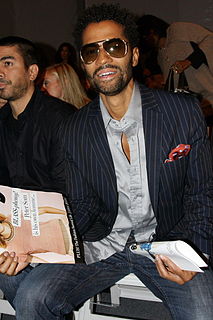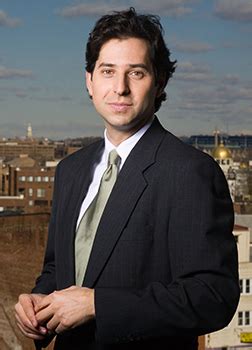A Quote by Barry Ritholtz
Active management leads to lots of poor investor behavior. It sends people chasing after whoever has the hot hand at the moment.
Related Quotes
I'm trying to laugh uncontrollably with whoever I'm making a song with because whatever we just listened to that we just came up with is so dope. I'm chasing that feeling in the studio, not like a trend or what's hot on the radio at the moment. It just seems like the more I do that, the better I get at what I do. I'm going to keep doing that.
Suppose you were a real estate investor with a 1/3 interest in the best apartment complex in town, the best mall, and the best office building. Would you feel like a poor, undiversified investor? No! But as soon as you get into stocks, people feel this way. Partly, people need to justify their fees.
Active management strategies demand uninstitutional behavior from institutions, creating a paradox that few can unravel. Establishing and maintaining an unconventional investment profile requires acceptance of uncomfortably idiosyncratic portfolios, which frequently appear downright imprudent in the eyes of conventional wisdom.
Companies, as they grow to become multi-billion-dollar entities, somehow lose their vision. They insert lots of layers of middle management between the people running the company and the people doing the work. They no longer have an inherent feel or a passion about the products. The creative people, who are the ones who care passionately, have to persuade five layers of management to do what they know is the right thing to do.
There is always great beauty, not of images, feeling or thought. Beauty is neither thought nor feeling; it has nothing whatsoever to do with emotion or sentiment. There is fear. Fear is never an actuality; it is either before or after the active present. When there is fear in the active present, is it fear? It is there and there is no escape from it, no evasion possible. There, at that actual moment, there is total attention at the moment of danger, physical or psychological.
It is easy to say that there are the rich and the poor, and so something should be done. But in history, there are always the rich and the poor. If the poor were not as poor, we would still call them the poor. I mean, whoever has less can be called the poor. You will always have the 10% that have less and the 10% that have the most.



































